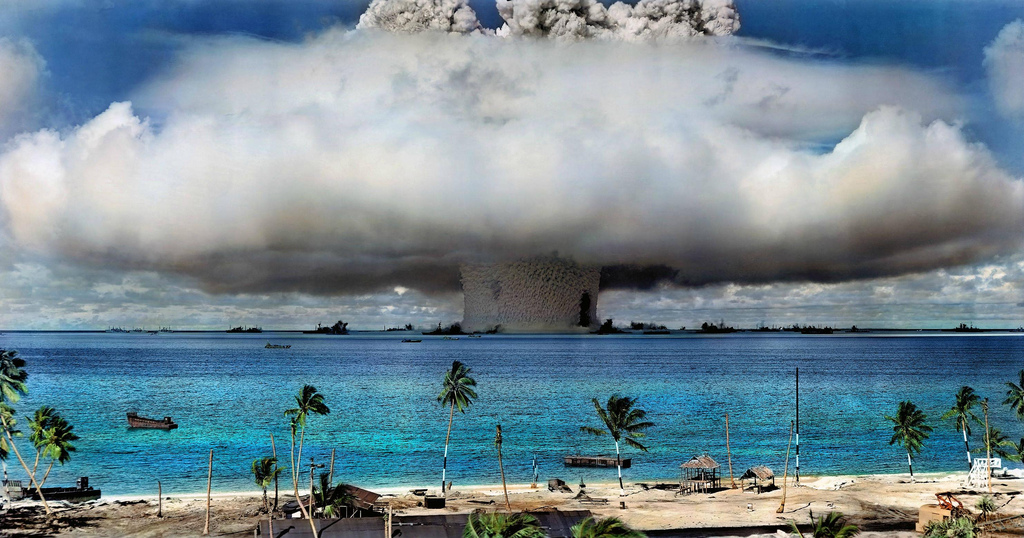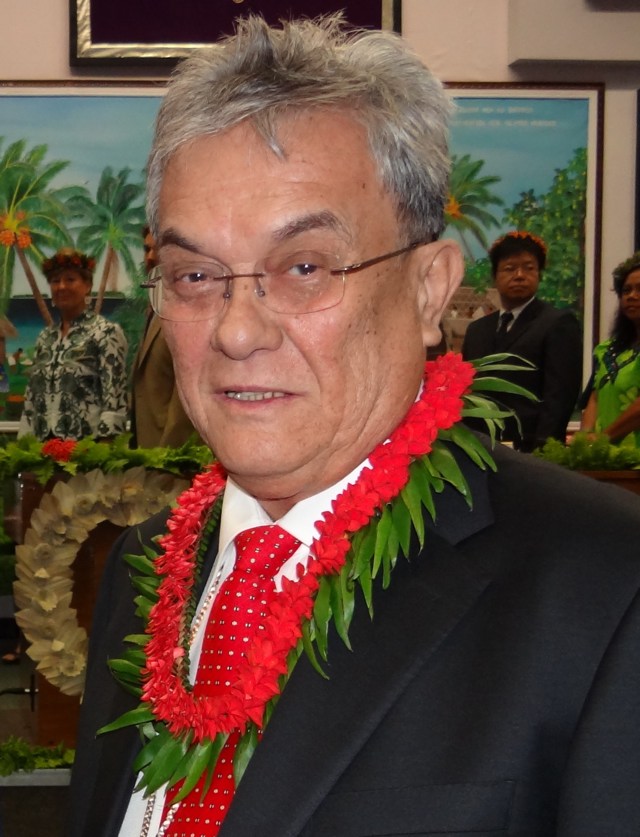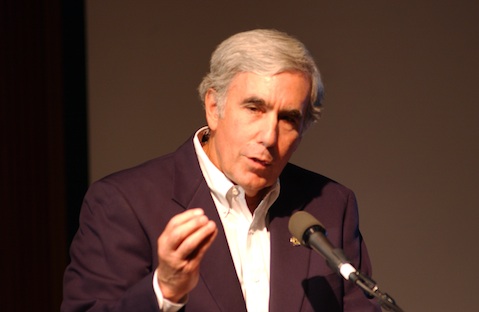Marshall Islands Files Nuke Suit Against Superpowers
Santa Barbara Organization Playing Central Role in Unprecedented Legal Challenge

In a modern day David and Goliath matchup — where David is armed with a lawsuit, Goliath with 17,000 nukes — the tiny Pacific nation of the Marshall Islands is suing the United States and eight other countries for allegedly breaching a 46-year-old treaty to dismantle their nuclear arsenals. The case was filed April 24 in U.S. Federal Court as well as in the International Court of Justice in The Hague, Netherlands.
Between 1946 and 1958, the U.S. peppered the Marshall Islands with 67 nuclear weapons tests, whose radioactive fallout continue to leave some of those islands unlivable. “Our people have suffered the catastrophic and irreparable damage of these weapons,” said Marshall Islands Foreign Minister Tony de Brum, “and we vow to fight so that no one else on Earth will ever again experience these atrocities.”

Instead of seeking compensation, the lawsuit aims to compel the world’s nine nuclear nations — the United States, Russia, the United Kingdom, France, China, Israel, India, Pakistan, and North Korea — to meet the obligations of the Treaty on the Non-Proliferation of Nuclear Weapons. Drafted in 1968, the treaty mandates that each country “pursue negotiations in good faith” to end the nuclear arms race “at an early date and to work toward worldwide nuclear disarmament.” (Israel, India, Pakistan, and North Korea didn’t have nukes when the treaty was created, but the lawsuit asserts that the order applies to them because of “customary international law.”)
David Krieger, president of the Santa Barbara–based Nuclear Age Peace Foundation, said the idea to file suit was hatched when de Brum traveled to the South Coast in 2012 to accept a leadership award from the Foundation, which then consulted on the case. “There were a lot of people in the world who had been discouraged by the lack of progress in disarmament and were looking for a bold and creative initiative,” Krieger said. “The Marshall Islands action fits that description.”
The law firm Keller Rohrback LLP — which has an office in Santa Barbara and specializes in constitutional and treaty law — was retained pro bono. The lawsuit is the first of its kind, but attorney Laurie Ashton believes it was properly filed because federal courts have jurisdiction over such claims. “It’s a matter of treaty law,” she went on, “which is both an international and domestic obligation in the United States under the supremacy clause.” As Krieger summed up, “The whole point of the lawsuits is to bring [the nine nuclear nations] into a forum where they need to address the issue of their unkept promises.”

No one from the U.S. District Court in San Francisco would comment on this pending case, but Ashton said that other countries are interested in joining and that a few Nobel Peace Prize winners are already supporting the effort, including South African Archbishop Desmond Tutu and Iranian-born rights lawyer Shirin Ebadi. It’s also not the first time a country has sued over nuclear weapons: In 1973, Australia and New Zealand sued France to stop its atmospheric tests over the Pacific and won. At first, France ignored the order, but international pressure eventually forced a switch to underground tests.
The Marshall Islands suit argues that rather than scrapping warheads, the countries named are actually ramping up the arms race to the tune of $100 billion a year. But whether the U.S. is complying with or ignoring the treaty remains unclear. “Critical information is still being hidden and access to documents severely restricted by the United States government,” said de Brum. “It is not easy to bargain in good faith absent documentation. … Our nuclear relationship with the United States is fraught with a multitude of promises, some kept, some not, but all negotiated, at least from our side, in good faith.” Krieger pointed to the U.S. withdrawal from the Anti-Ballistic Missile Treaty in 2002, saying it set a bad tone for future disarmament.
The response from other governments has so far been minimal and dismissive. Only three of the countries (Britain, India, and Pakistan) recognize the jurisdictional authority of the International Court of Justice (ICJ), so the Marshall Islands is asking all of them to accept the ICJ’s jurisdiction and explain their positions on the case. They have 60 days to reply. “For me,” said Krieger, “the interesting part about this is when two unequally sized and powerful countries meet in court, they stand on level footing.”
But it’s very hard to tell how the issues will be resolved. “I am a peace and nuclear-free-world advocate and would be most grateful for a judicial outcome supporting those goals,” said de Brum. “But I am not a prophet and cannot predict the outcome of these lawsuits.”
For more information, visit nuclearzero.org and wagingpeace.org.
—



